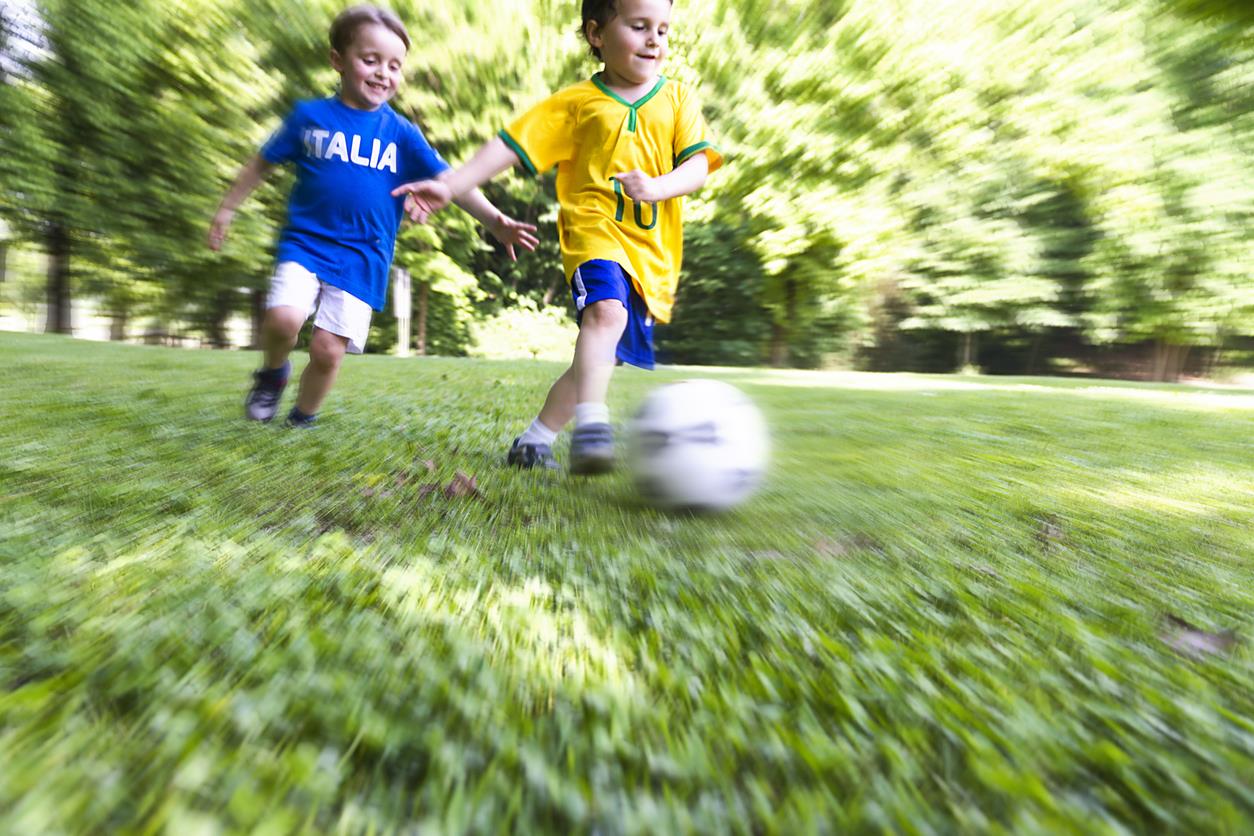Field of Dreams: When It Comes to Youth Sports, Remember What's Important

The pressure to raise a superstar athlete has many parents eager to sign their kids up for sports soon after they learn to walk. “It’s our only hope to pay for college,” goes the familiar playground quip.
Other parents may wonder if kids’ sports are worth the expense, time commitment, and potential injuries. (Once upon a time, kids played games once a week, but today all-weekend tournaments are the norm.) Participation in team sports can be a great social activity, keeps children active and outside, but it’s important to remember the first goal of sports for kids—sports should be fun!
More and more experts are arguing that childhood sports are becoming too structured too early in life, taking away the fun factor of childhood play. Thinking about getting your kids started?
Here are a few things to consider.
1. You don’t need to start too young.
According to Kidshealth.org, most kids are ready for organized sports at 6 or 7 years old. Even though there are many options out there for toddlers and preschoolers, many youngsters don’t have the attention span or physical skills required until they’re in grade school. But that doesn’t mean young kids can’t get familiar with sports and team games—in fact, introducing kids to fun, casual games without a focus on competition can be a great way to build coordination and social skills.
2. Exposing children to a variety of sports develops strong bodies.
According to sports medicine research from Loyola University in Chicago, kids who played a single sport were much more susceptible to stress fractures, damage to ligaments from overuse, and even cracks in joint cartilage. Moving the body in many different ways—through playing a variety of sports and games throughout childhood—develops strong, balanced bodies that aren’t taxed in the same way over and over again.
3. Let them try a few different sports to help them find their true passion.
If your child expresses an interest in a specific sport, it’s best to start there: Even if they end up choosing a different sport, it’s helpful to let them follow their own path.
However, it’s also great to let them try a few different sports if she’s game; a bit of patience and persistence will pay off when your child discovers a sport (or five) that she loves. If your child doesn’t know which to pick, it can be handy to match their temperament to a sport.
4. Free time can be just as important!
These days, family schedules are so packed that between sports, homework, music lessons, and school, there’s hardly any time for daydreaming. New research suggests people who have plenty of free time as children have more social success as adults, and that unstructured fun plays a major role in developing the parts of the brain that relate to emotions, problem solving, and making plans. So bring on the free play—even if you have to schedule time for it.
5. Keep 'em safe!
Before having your child start any sport, it’s a good idea to check in with your pediatrician for a physical to make sure they’re ready to play, and to address issues like asthma or other physical limitations. Once you have the go-ahead, there are several things you can do to keep your little ones safe during the on-season:
- Make sure your child’s coaches are qualified to instruct the sport, and are trained in first aid and CPR.
- Place your child on a team according to weight, size, and skill instead of physical age to make sure they are going up against physical peers to avoid injury.
- Dress your child appropriately—using layers in case they get hot or the temperature drops—and be sure to wear sunscreen year-round.
- Remember to warm up. Don’t let kids run off into the hardest part of practice or a game without stretching their muscles, moving their joints, and slowly building up their heart rate.
- Make sure your child is wearing appropriate protective gear—and that it fits. No helmets “they’ll grow into.”
- Stay hydrated! Here’s a great guide to proper hydration for kids, from safekids.org.





